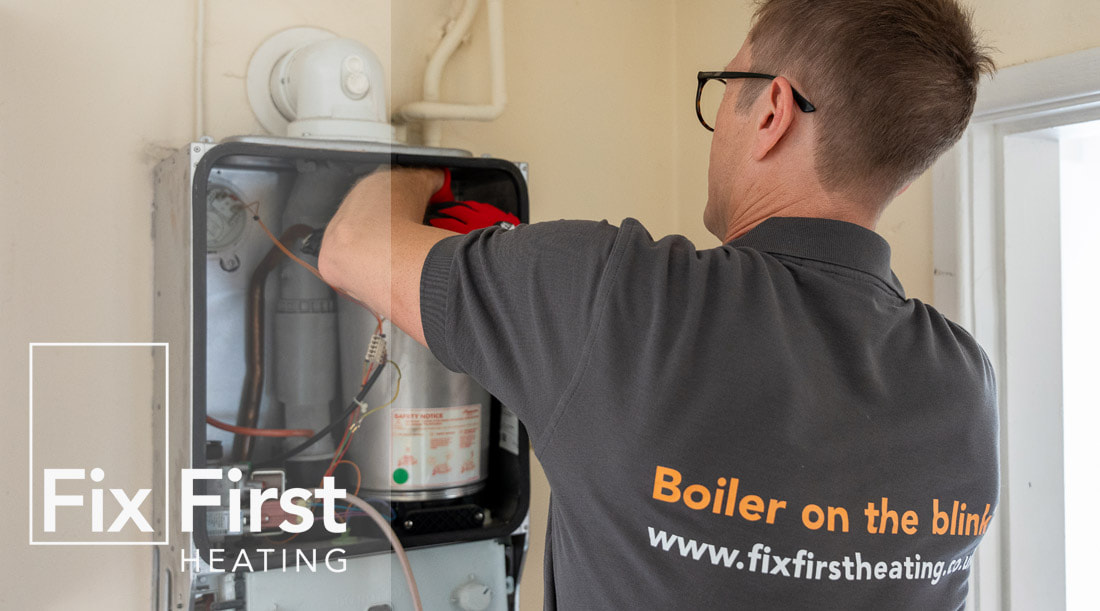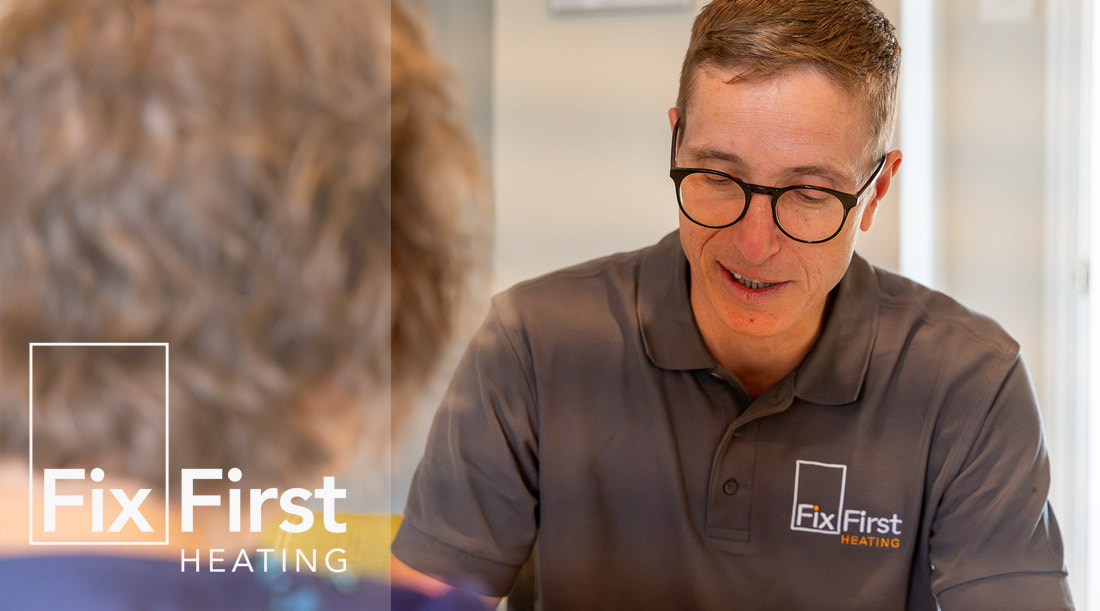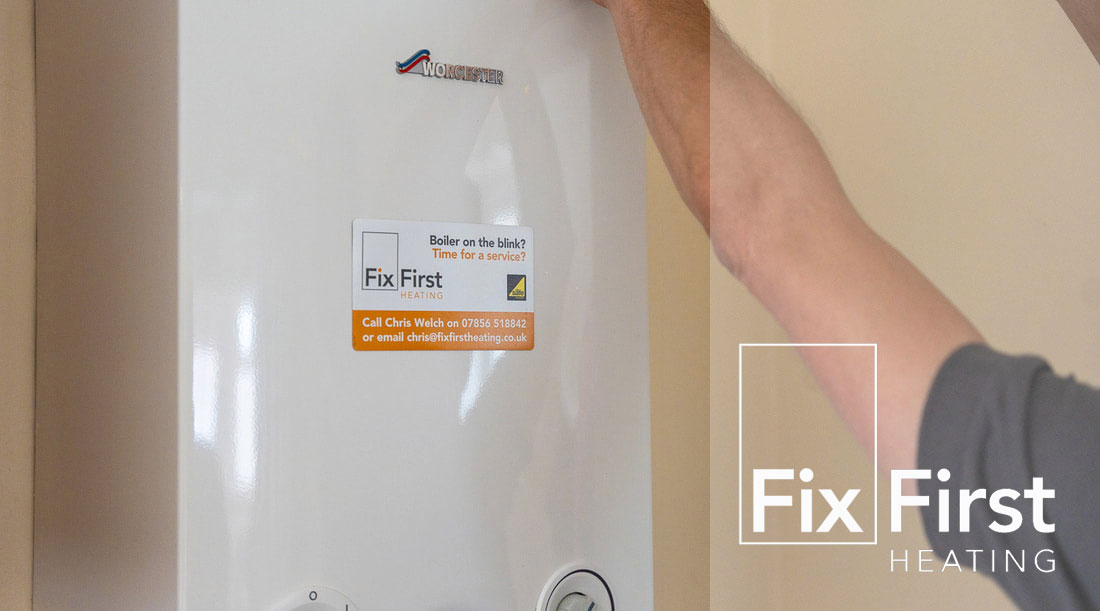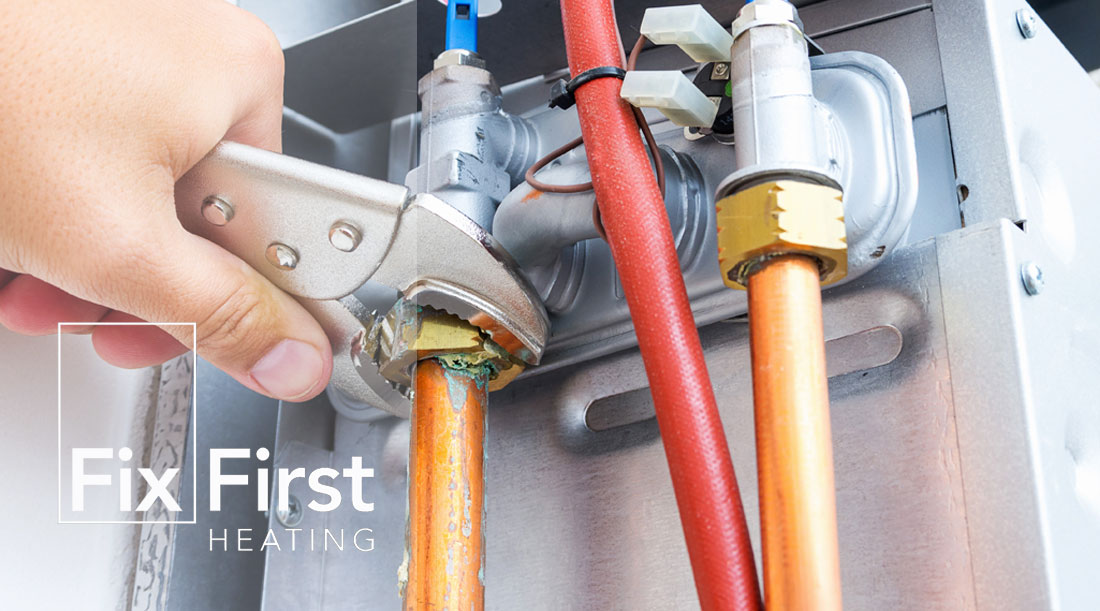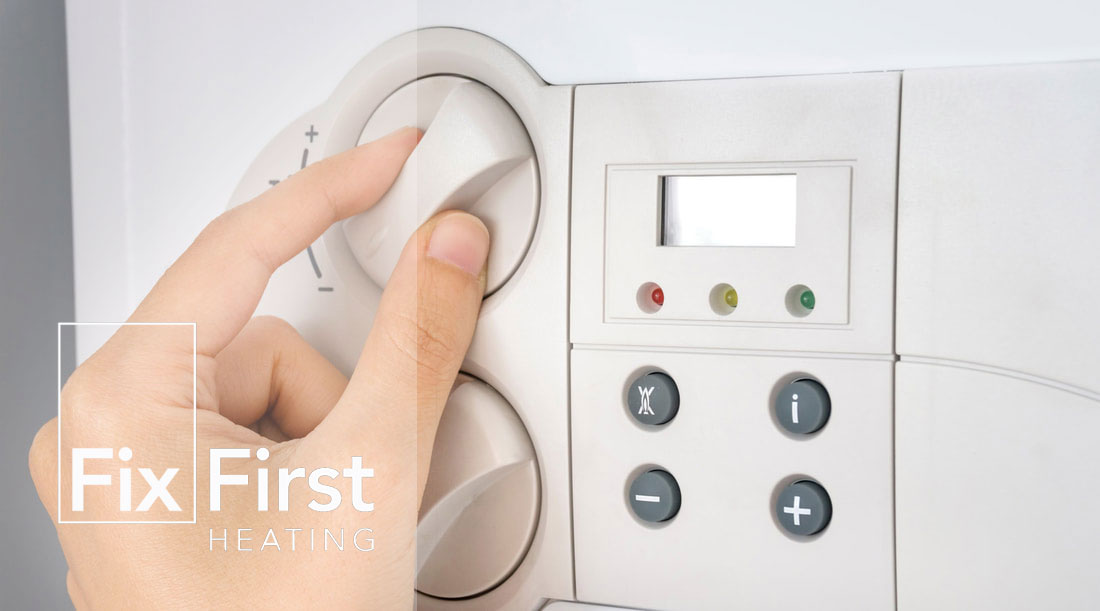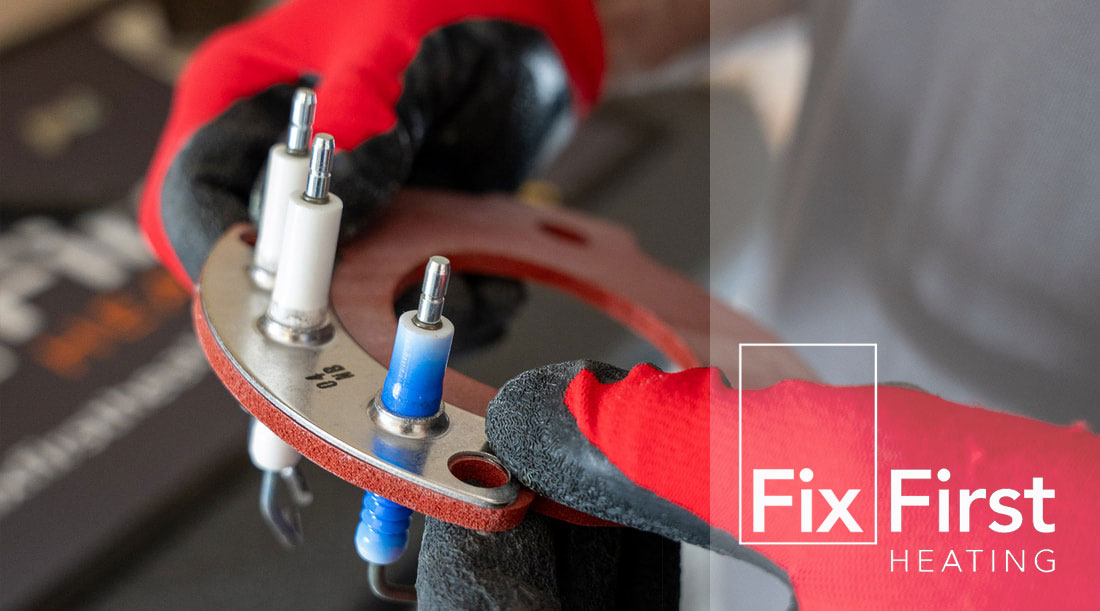|
This is a question we get asked a lot. Replacing your boiler is one of the biggest household expenses you’ll have, so it’s wise to consider your options carefully.
Our website has a quote tool to let you see how much a new boiler will cost, but the truth is, a replacement boiler might not be your best option. So, what things should you consider while deciding whether to keep your old boiler running for longer. Cost of Repair If your boiler is faulty, the repair might not cost a bomb. Most repairs are less than £300, a fraction of the cost of a new boiler. If it’s a more expensive component, you may decide to cut your losses and replace the boiler. You could ask your engineer to quote for a repair before making your decision. Age Most heating companies will advise you to change your boiler if it’s over 10 years. We don’t agree. If a boiler was fitted after 2005, it’s already A-rated. The efficiency of a boiler doesn’t reduce over time. So, if your gas bills are your primary concern and your boiler is still in good nick, then keep it going. Efficiency Boilers fitted up to the mid-90s will be running at as little as 65% efficiency, meaning you’re wasting 35% of all the heat the boiler produces. After this time, boilers could give efficiency levels of around 80%. Modern condensing boilers claim to run at up to 95% efficiency, but they have to be installed correctly or you could still be wasting energy. We can help adjust your system to make your existing boiler work more efficiently. Cost of replacement You could save around £350 a year by replacing an E or F rated boiler with an A rated condensing boiler. So, the cost could potentially be recouped in about 10 years. However, the savings are not as big for D rated boilers, some of which are still in good condition and could potentially keep running for many years if properly looked after by servicing regularly. Condition of the boiler If your boiler has been neglected or has sprung leaks, the cost to repair might be so high that a new boiler with a long warranty would be the better option. If the boiler was cheap and badly installed then a new, reliable boiler is the best option. Again, we’re here to assess your system and give you honest advice. Parts Manufacturers stop making parts for their boilers once the demand for those bits dries up. But, the parts that become obsolete first are the ones that are less likely to fail, meaning the most common parts, such as fans or control boards, may still be replaceable. Ultimately, the decision is yours. Get in touch and we can give you honest advice to help you make an informed decision.
0 Comments
Have you ever had an engineer come to service your boiler who’s been in and out in 20 minutes?
If you’ve thought to yourself, ‘wow, that was quick’, then the chances are the engineer has not been as thorough as they should. There are a number of key elements to a boiler service, which, if neglected, may cause the boiler to fail when you need it most. This could result in expensive and unnecessary callouts. So, next time an engineer comes round to do your boiler service, ask them politely if they’ve done the following 5 things:
All of this should take about an hour or longer if any parts need to be replaced. Should I Get my Boiler Serviced? You should expect your boiler to last 15 years or more, but neglecting your annual maintenance may significantly reduce its lifespan. Investing a small amount now on an annual boiler service will prevent expensive bills later for repairs or early replacement. This guide provides essential insights into boiler maintenance, service frequency, and duration. Do I Need to Service My Boiler? Boilers are a vital part of a comfortable home. When neglected they will develop faults. To keep your boiler in tip-top condition it is essential to get it serviced every year. It is recommended by manufacturers, and warranties often mandate it. Regular services significantly reduce the risk of major breakdowns, saving homeowners from costly repairs. What's the law on boiler servicing? As a homeowner, you are not legally obliged to service your boiler, but it's highly recommended. If you have tenants in your property, you must have a valid landlords gas safety certificate, which includes safety inspections for all gas appliances. Find out more about our Boiler Servicing: Is your boiler due a service in Peterborough and the surrounding area? Contact us to get your boiler booked in. Here at Fix First Heating our heating maintenance packages are designed for your comfort and peace of mind. The four options all include an annual boiler service, 10% discount on heating upgrade work and at least one free callout a year. What's more, you'll be one of our priority customers, meaning that at busier times of year, we'll ensure you're at the front of the queue for any emergency work. The service packages are designed to suit any budget. As there is no minimum term, you can join or cancel at any time. 1. Service Plus - £9 per month:
2. Boiler Plus - £18 per month:
3. System Plus - £24 per month:
4. Total Plus - £30 per month:
No matter which tier you choose, rest assured that Fix First Heating is committed to delivering top-notch service. With transparent pricing and a team of skilled technicians, we make it easy for you to select the level of coverage that aligns with your budget and heating system requirements.
By subscribing to our maintenance packages, you not only invest in the longevity of your central heating system but also gain access to priority service and peace of mind throughout the year. Choose Fix First heating maintenance packages – where your comfort and satisfaction are our top priorities. Contact us today to discuss your needs and find the perfect tier for your home! Replacing your boiler is one of the biggest household expenses there is. If you’ve already done a little research, you’ll see that prices can vary widely. It’s important to research your purchase carefully, as you should be living with your new boiler for 15 years or more. Let’s take a look at the things that will affect the cost of replacing your boiler. ManufacturerThe quality of the boiler is the biggest determining factor in the cost of replacement. You can get some very cheap nasty boilers, which we do not fit and would never recommend. You’re entering a world of pain if you choose to fit a Ferroli, a Biasi, or something similar. At the high end, you have brands such as Worcester, Vaillant and Viessman. These companies have built a reputation for reliability and build quality. Somewhere in the middle sit brands like Ideal and Baxi. If you’ve bought a new build house in the last 10 years, the chances are, it has an Ideal boiler. All boiler manufacturers offer some kind of reward scheme to their installers, so many companies will steer their clients towards their preferred brand. It’s wise to ask the engineer or salesperson about other potential options. Power output of the boilerIdeally you should have a detailed heat loss survey on your house to ensure you’ve sized the boiler correctly. This obviously adds to the cost but may save you money in the long run. The energy output of boilers is measured in kilowatts. Most domestic boilers range from 12kw to 40kw. The greater the output, the more you will pay. Changing the type of boilerIf you currently have a boiler with a separate hot water cylinder in the airing cupboard and you’d like to change this to a combi boiler, the installation cost will increase. There are pipework alterations needed for this and changes to the heating controls. Swapping out one boiler for another of the same type can usually be done in a day, so the labour costs in this case are reduced. Moving the boilerIf you’ve decided to locate your boiler elsewhere in the house, this will significantly increase the cost of installation. It usually means lifting floorboards to move pipes and cables. It also means a new hole will need cutting for the flue. Flue positionIf your flue comes directly off the top of your boiler and straight through an outside wall, this makes replacement easier and cheaper. Vertical flues that terminate through a roof can add a great deal to the cost, especially if the installer insists on erecting a scaffold tower to access the roof. ControlsThermostats and programmers vary widely in both quality and price. Regulations now require new boilers to be fitted with high efficiency controls. This means either a smart thermostat you can control from an app, such as Hive or Nest, or a more sophisticated control that communicates directly with the boiler. Many boiler manufacturers produce their own controls which tend to be more expensive but give greater efficiency to the boiler, so could save you money over time. Type of system flushA proper powerflush, which uses a pump to circulate cleaning chemicals around your system, will take a full day to complete. A chemical cleanse is often used when new boilers are fitted. The engineer will add a cleaning chemical to the system and let it run for a while before draining the system to remove the dirty water. This is by far the cheapest option, but doesn’t clean the sludge out of your radiators very effectively. Mains pressure flushing can be used as an alternative to powerflushing. This uses the pressure from your cold-water supply to clear debris from your system. It can target each radiator individually but takes a fraction of the time of a full powerflush. Other alterationsChanging radiators, replacing your hot water cylinder, or any other additional work will add to the cost of your installation. InstallerPerhaps the hardest decision to make is which company to choose to do the work. It’s wise to get a number of quotes to see how prices may vary. It’s not always wise to opt for the cheapest. Check out reviews online and look for recommendations from friends and family.
At Fix First Heating, we speak to hundreds of customers every year about their heating and plumbing needs. We know it’s important for you to be able to make an informed choice about who to trust in your home.
We’re honest about the competition, so we thought we’d share with you some of the other established boiler and heating companies in Peterborough, UK to help you decide the best fit for you. Raw Heat Raw Heat provides repair and installation services to the domestic and commercial market. They also offer renewable option including solar and air source heat pumps 4* Facebook 3.9* Google CC Heating and Plumbing Specialists in installing Vaillant boilers, but also installing Glowworm and Worcester, they offer up to 10 years guarantee with various finance options available. 5* Facebook 4.4* Google Mark Abraham Gas Services A local company that gains most of its work through word-of-mouth recommendations. They specialise in gas service work. 4.9* Google 5* Facebook Smart Heat Offering 24/7 emergency repairs and a team of qualified gas and heating engineers, Smart Heat also provides installation and repair to commercial customers. 4.5* Facebook 4.8* Google PlumbCall Established in 1985, PlumbCall offers same or next day call out to the Peterborough area. PlumbCall are Worcester Accredited Installers, offering up to a 12-year guarantee on new boilers. 4.1 Facebook 4.3 Google 4.5 Trustpilot What is a combi boiler? Should I get a combi boiler? Is a combi boiler the best option for me? I am guessing you don’t know where to start, if so here’s some advice to help you decide if a combi boiler is the best option for you. Why do I need a Combi Boiler Combination boilers are a great energy and space saving appliance. They heat your water as soon as you run a tap, meaning there’s no need for a storage tank. When a hot tap is opened, the combi recognises water is flowing. The boiler immediately responds by lighting a burner to heat the water. Combi boilers are designed primarily for smaller houses with one bathroom. So, if you have an ensuite or an extra bathroom, a combi might not be the best option. This is because most combi boilers can only provide hot water to one tap or shower at a time. This isn’t a problem in smaller houses or flats but would cause flow problems in houses with two showers. Some modern combination boilers have been designed to overcome this flow problem by containing a small storage vessel for hot water or by having a large heat output. It’s a good idea to seek advice from a local heating engineer to see if a combi boiler is the best fit for your property. How does a combi boiler work A combi (combination) boiler provides central heating and hot water directly. It prioritises hot water. If you have the central heating on and then run a hot tap, the boiler switches to hot water mode. Once you’ve finished using the hot tap, the boiler will then divert its heat back to the central heating. You will usually see combi boilers in smaller houses or flats that contain only one bathroom. These boilers contain a diverter valve. This diverts water away from the radiators towards the hot water. When you run a hot tap, the boiler senses a flow of water through a flow switch or turbine. It immediately responds by lighting a burner to quickly send heat to your bath, shower, or sink. Once the demand for hot water is over, the boiler will either switch back to central heating (if you’ve got the heating on) or sit in stand-by mode waiting for the next demand. Combi boilers can be more efficient as you’re only heating the water you use, so less energy is wasted than if you were heating a tank of hot water. So, should I get a Combi Boiler? If you answer yes to all of the questions below, then a combi boiler is probably a good choice for your home:
You can get more information on different types of combi boiler direct from the manufacturers: New Boilers | Worcester Bosch (worcester-bosch.co.uk) Gas Boilers | Domestic Central Heating from Vaillant ATAG Boilers - Built To Last (atagheating.co.uk) All boilers will need repairing at some point. If boilers are not regularly serviced issues will arise more quickly. There are certain faults which are common to all boiler manufacturers such as pressure problems or blocked condensates. Then there are those faults particular to each manufacturer. Here we give you a description of the most common repairs for each manufacturer. VaillantLeaking diverter valve – commonly leaks from the spindle moving the valve from heating to hot water position. Printed Circuit Board – these issues most often present as intermittent F-code errors. Worcester Fan baring plate – a loose flap between the fan and the burner which can stick, causing ignition faults. Leaking flow sensor – an adaptor which attaches to the hot water flow detector can become brittle and crack causing a leak. IdeaSpark generator – this part creates the current that generates a spark to light the burner. If it fails, the boiler will show an ignition fault. Leaking sump – an expensive repair requiring a new primary heat exchanger. GlowwormLeaking manifolds – the plastic connector at the back of the boiler can develop a hairline crack and start to leak. PCB – normally presents as a completely blank display screen. Very common on older models. BaxiCircuit board, fan, burner assembly – when newer Baxi models fail, they require a unit that contains 3 separate components to be replaced – quite expensive if the boiler is outside the warranty period. ViessmannBlocked heat exchanger pipes – older models have rubber tubes that connect the flow and return pipes to the heat exchanger. These often become blocked with rust and other particles from the heating circuit. Parts availability – historically, some Viessmann parts took 2 weeks to be delivered from Germany. Vokera Cracked heat exchanger – some models develop corrosion on their primary heat exchangers – an expensive and sometimes terminal failure.
Fan failure – presents with A-code and causes total outage of the boiler. Most faults listed are easily repairable and may be covered by the manufacturer’s warranty. Repairs must only be carried out by a Gas Safe registered engineer. Depending on the age of the boiler and the cost of the repair, you may decide that it’s better to replace the boiler. If we attend your fault, we will give you an honest assessment of the condition of the boiler, the cost to repair and the cost and benefits of replacement, to allow you to make an informed choice. You can also check out our Quick Quote page to get an idea of the cost of an new boiler in just a few minutes. |
News
The latest news from Fix First Heating.
Archives
June 2024
Categories
All
|
Services
|
More
|
Quick Quote
Get your boiler install quick quote:
|
Contact
|
T&C's | T&C's - Service Plans | Terms of Use | Privacy Policy | Cookie Policy
Fix First Heating provide Boiler Installation, Boiler Repairs and Boiler Servicing and Service Plans throughout Peterborough in Cambridgeshire.
© Copyright Fix First Heating 2023 | Website Design & Development by Creative Remedy
Fix First Heating provide Boiler Installation, Boiler Repairs and Boiler Servicing and Service Plans throughout Peterborough in Cambridgeshire.
© Copyright Fix First Heating 2023 | Website Design & Development by Creative Remedy


